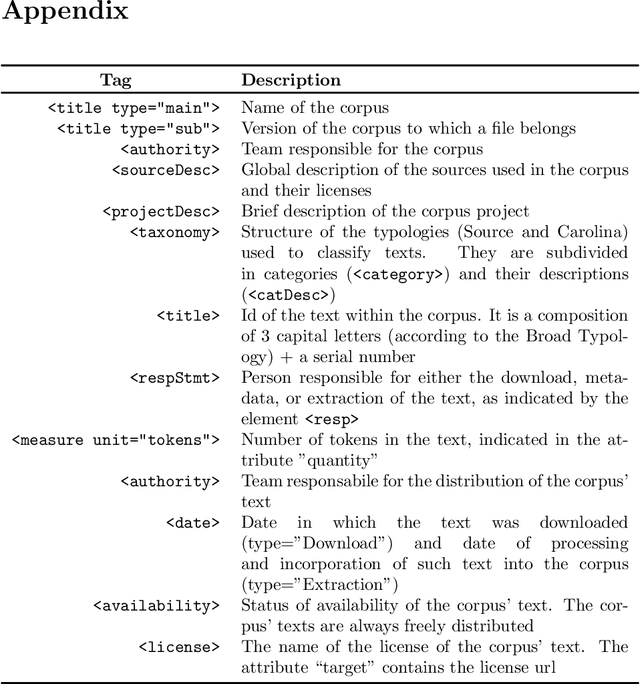Guilherme Lamartine de Mello
PeLLE: Encoder-based language models for Brazilian Portuguese based on open data
Feb 29, 2024



Abstract:In this paper we present PeLLE, a family of large language models based on the RoBERTa architecture, for Brazilian Portuguese, trained on curated, open data from the Carolina corpus. Aiming at reproducible results, we describe details of the pretraining of the models. We also evaluate PeLLE models against a set of existing multilingual and PT-BR refined pretrained Transformer-based LLM encoders, contrasting performance of large versus smaller-but-curated pretrained models in several downstream tasks. We conclude that several tasks perform better with larger models, but some tasks benefit from smaller-but-curated data in its pretraining.
Carolina: a General Corpus of Contemporary Brazilian Portuguese with Provenance, Typology and Versioning Information
Mar 28, 2023



Abstract:This paper presents the first publicly available version of the Carolina Corpus and discusses its future directions. Carolina is a large open corpus of Brazilian Portuguese texts under construction using web-as-corpus methodology enhanced with provenance, typology, versioning, and text integrality. The corpus aims at being used both as a reliable source for research in Linguistics and as an important resource for Computer Science research on language models, contributing towards removing Portuguese from the set of low-resource languages. Here we present the construction of the corpus methodology, comparing it with other existing methodologies, as well as the corpus current state: Carolina's first public version has $653,322,577$ tokens, distributed over $7$ broad types. Each text is annotated with several different metadata categories in its header, which we developed using TEI annotation standards. We also present ongoing derivative works and invite NLP researchers to contribute with their own.
 Add to Chrome
Add to Chrome Add to Firefox
Add to Firefox Add to Edge
Add to Edge